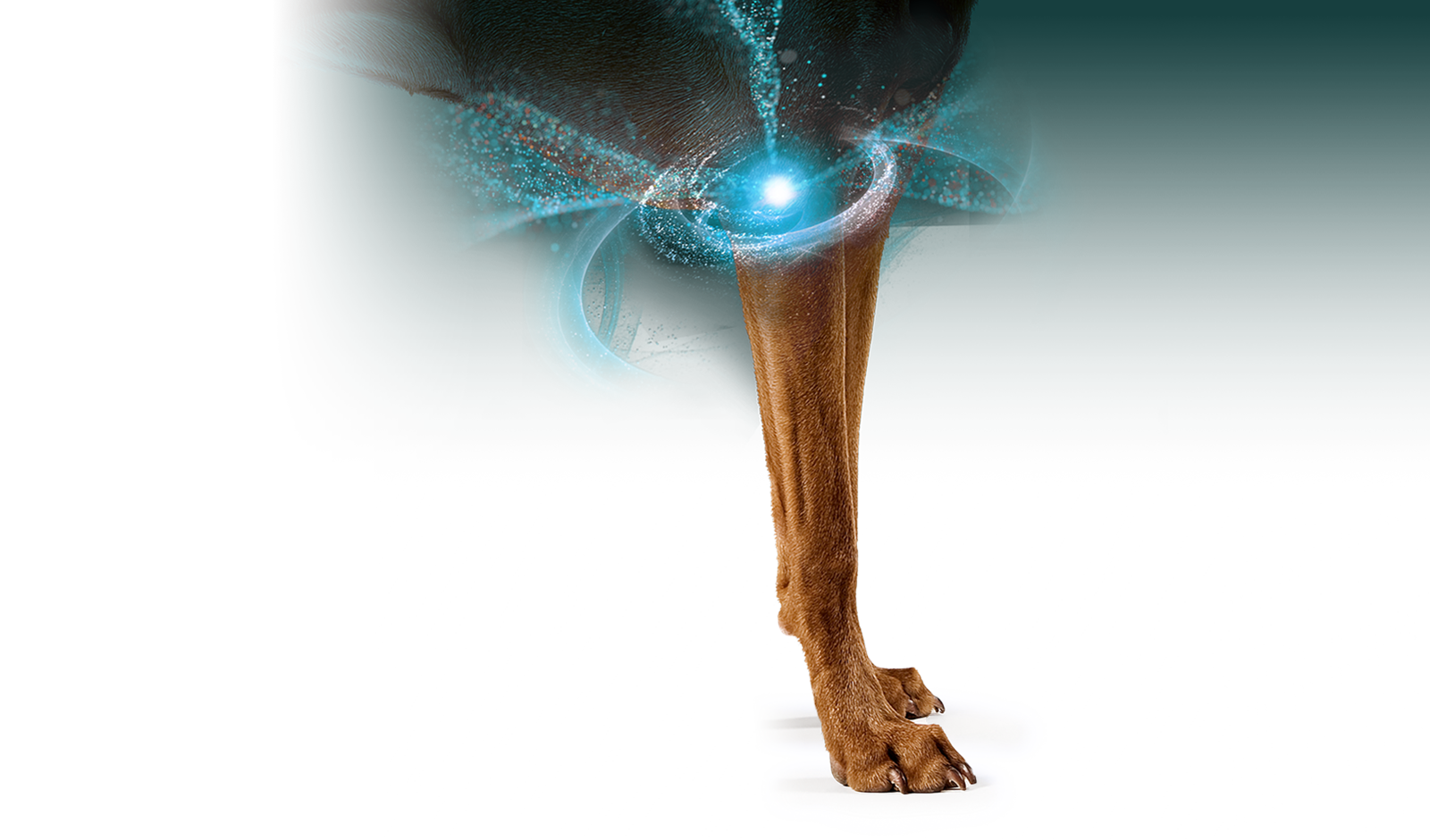The transformative power of stem cells in action
The majority of current medical treatments for osteoarthritis act systemically and do not modify the underlying pathological processes. Targeted local treatment options have been limited due to a lack of licensed formulations, and the invasive and/or time-consuming processes involved in local treatments such as autologous stem cell therapy and platelet-rich plasma (PRP).

These preparations can also be of variable quality. For example, the quality of autologous stem cells is subject to numerous variables including; the tissue source, processing and culture expansion method, and donor age, with older patients typically yielding poorer quality stem cells.1
The need for an additional anaesthetic to surgically harvest the stem cells (usually from adipose tissue) also means that use of autologous stem cells is more invasive for the patient. This results in a recovery period and the potential for scarring,2 as well as increasing the number of vet visits for the owner and associated expense, which can make it cost prohibitive for owners.
DogStem® is breaking new ground. It’s ready-to-use and effective from 3 months to more than 12 months after a single intra-articular injection.3,4 It offers a licensed formulation of stem cells gathered in an ethical and sustainable way from equine umbilical cords after birthing. The umbilical cord is considered the best source of consistent quantity, quality and safety of ethically harvested stem cells.5-8
Stem cells have immunomodulatory, anti-inflammatory and potential tissue regenerative properties,3,9 giving them the potential to slow disease progression4,9,10 as well as targeting joint pain and inflammation.10
How stem cells work – transforming from inflammatory to non-inflammatory
See the transformative power of mesenchymal stem cells in action. Our video brings to life the cell-to-cell and paracrine mechanisms of stem cells and their immunomodulatory, anti-inflammatory and tissue regenerative properties.3,9 See how they transform the joint environment from inflammatory to non-inflammatory.3,9
Lead the way
Now you can bring a convenient and long-lasting3,4 stem cell treatment to dogs with osteoarthritis and their owners. Ready-to-use, with long-lasting efficacy following a single intra-articular injection3 – you’re set to transform dogs’ lives with DogStem.
Proven, lasting results – Clinical trial results
A prospective, randomised, double-blinded, placebo-controlled trial demonstrated the efficacy and safety of equine umbilical cord mesenchymal stem cells in the treatment of canine osteoarthritis:4
Improved mobility
- 63% of dogs showed a clinically relevant improvement in force-plate gait analysis 8 weeks after treatment
- 77% had an improved orthopaedic examination by week 8
- 60% of owners reported improvement in walking, 27% in playing with other dogs and 42% reported reduced stiffness after sleeping, 12-18 months after administration
Training to help you transform dogs’ lives
Find out more about support and training to help you bring stem cell treatments to dogs and their owners for the first time from your practice.

Ordering DogStem
Bringing DogStem® to your patients is simple and straightforward. DogStem is available to order through through this site.
- Nöth, U., et al. (2008). Technology insight: adult mesenchymal stem cells for osteoarthritis therapy. Nature Clinical Practice Rheumatology, 4(7), 371-380.
- Pye, C., et al. (2022). Advances in the pharmaceutical treatment options for canine osteoarthritis. Journal of Small Animal Practice.
- DogStem suspension for injection for dogs SPC.
- Punzón, E., et al. (2022). Equine umbilical cord mesenchymal stem cells demonstrate safety and efficacy in the treatment of canine osteoarthritis: a randomized placebo-controlled trial. Journal of the American Veterinary Medical Association.
- Kern, S., et al. (2006). Comparative analysis of mesenchymal stem cells from bone marrow, umbilical cord blood, or adipose tissue. Stem Cells, 24(5):1294-1301.
- Li, X., et al. (2014). Comprehensive characterization of four different populations of human mesenchymal stem cells as regards their immune properties, proliferation and differentiation. International Journal of Molecular Medicine, 34(3), 695-704.
- Schnabel, L. V., et al. (2013). Therapeutic use of stem cells in horses: which type, how, and when? The Veterinary Journal, 197(3), 570-577.
- Nagamura-Inoue, T., & He, H. (2014). Umbilical cord-derived mesenchymal stem cells: their advantages and potential clinical utility. World Journal of Stem Cells, 6(2), 195.
- Kriston-Pál, É., et al. (2017). Characterization and therapeutic application of canine adipose mesenchymal stem cells to treat elbow osteoarthritis. Canadian Journal of Veterinary Research – Revue Canadienne de Recherche Veterinaire, 81(1), 73-78.
- Brondeel, C., et al. (2021). Review: Mesenchymal stem cell therapy in canine osteoarthritis research: “Experientia Docet” (Experience Will Teach Us). Frontiers in Veterinary Science 8, 668881.
- Sultana, T., et al. (2018). Current status of canine umbilical cord blood-derived mesenchymal stem cells in veterinary medicine. Stem Cells International, 2018.
- Crisostomo, P. R., et al. (2006). High passage number of stem cells adversely affects stem cell activation and myocardial protection. Shock, 26(6), 575-580.
- Daems, R., et al (2019). A feasibility study on the use of equine chondrogenic induced mesenchymal stem cells as a treatment for natural occurring osteoarthritis in dogs. Stem Cells International, 2019, 4587594.
DogStem is licensed for the improvement in function and reduction of pain and lameness associated with mild to severe osteoarthritis in hip and elbow joints. DogStem suspension for injection for dogs contains 6.5×106 – 9×106 equine umbilical cord mesenchymal stem cells. Legal category POM-V.
For more information, please view the full SPC or contact TVM-UK Animal Health Ltd, Kirtlington Business Centre, Slade Farm, Kirtlington, Oxfordshire, OX5 3JA, UK. Tel: 0800 0385868 | Email: help@tvm-uk.com | www.tvm-uk.com. Use medicines responsibly. www.noah.co.uk/responsible Advice should be sought from the medicine prescriber.
